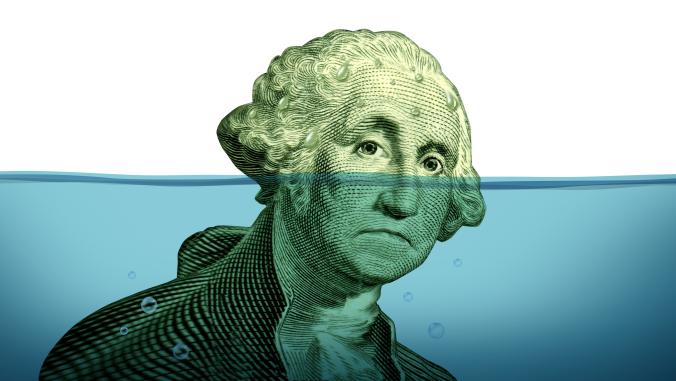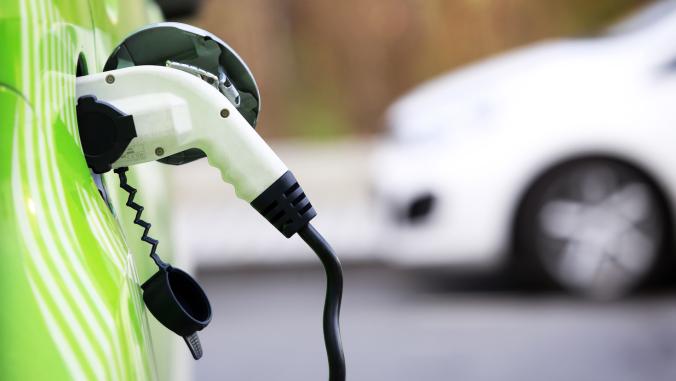Can B Corps take companies beyond the bottom line?
B-Corps require businesses to consider environmental and social impacts, as well as financial returns - and interest in the concept is growing fast.

With rafts of companies signing up to new carbon targets in the lead up to the Paris climate conference, many corporate leaders increasingly cite the business case for sustainability measures when trying to convince shareholders to back their decarbonisation efforts.
But some organisations are now taking a more fundamental approach to tackling environmental issues, arguing that an exclusive focus on profits is unnecessarily preventing businesses from putting social values at their core. They argue a whole new understanding of what constitutes a business may be required to ensure environmental and social issues are properly addressed by the private sector. And now that vision is being put into practice with the emergence of the B Corporation, or B Corp, movement.
First developed in the US, the B Corp concept provides a framework — and certification — to companies to help them redefine success in business, offering them a legal structure that makes it easier for managers to put an equal emphasis on serving workers, communities, and the wider environment, alongside shareholders.
James Perry, director of the non-profit B Lab UK — which was set up to support the growing movement in the UK — describes how the idea is about expanding the official goals of the business.
"It's a global movement of business leaders who are saying that business can do more than just be focussed narrowly [on] operating a business for shareholders when there are so many other inputs that we should be valuing, like people, planet, as well as profit," says Perry, who is also chairman of the frozen ready meals company COOK, which became one of the first B-corps in the UK three years ago.
They discovered the hard way the difficulties companies can face when they are beholden to shareholder profits at the expense of everything else.
While the idea of expanding the focus of a company to address environmental and social issues might be appealing to some, many business owners will argue that giving a business multiple goals beyond maximising shareholder value risks creating conflicting pressures within an organization.
But Perry says businesses tasked with addressing broader goals don't have to make trade-off with regards to shareholders, and argues the B Corp approach will actually lead businesses towards a much bigger role in society, which will be good for everybody. "If you have a very defensive orientation towards your workers, communities and the environment, as in you just use them as risks to manage rather than areas to create value, then you just constrain your imagination and your potential," he says.
The B Corps movement was kicked off nine years ago in the US by former owners of a basketball fashion business. They discovered the hard way the difficulties companies can face when they are beholden to shareholder profits at the expense of everything else. "They found out at the moment when they sold the business, which had about $250m revenues, that they had to sell it to the highest bidder," Perry recalls. "And that slightly broke their heart because they found a bidder they wanted to sell it to, but their legal responsibility was to sell it to the highest one. So they sold it to somebody and then watched effectively all those values get extracted within apparently about three months."
In response, they founded B Lab, which serves as a certification body for B Corps. To become B Corp accredited, a company has to change its governing document to make it legally bound to serving workers, communities, and the wider environment as well as shareholders. While this may initially sound a bit like a social enterprise, B Corps critically differ from traditional social enterprises by having no restrictions on how they use their profits.
"In our language we would say we have a mission lock, which is the legal requirement, we have a performance lock, which is a performance requirement, but we don' t have an asset lock," says Perry.
Nine years later and there are 1,400 B Corp organisations spread across 42 countries worldwide, and the B Corps movement officially reached the UK last month with a launch by 62 founding organisations, most of them newly certified.
As might be expected, these include a host of green-orientated businesses, such as carbon footprinting company Carbon Analytics, carbon offsetting firm ClimateCare and green consultancy SustainAbility. But plenty of other sectors are represented: baby bag maker Land of Ed, tech business Streetlife and even financial services businesses such as Clearlyso and EQ Investors have become B Corp certified.
B Corp provides a certification to companies, offering them a legal structure that makes it easier for managers to put an equal emphasis on serving workers, communities, and the wider environment.
Any company can also test their performance against B Corp standards for free using the online tool bimpactassessment.net, which Perry says has already been used by around 35,000 companies worldwide. The scorecard asks questions on every aspect of a business: From how local the supply chain is to the energy ratings of the workplace the company operates in. Anyone scoring over 80 out of a total 200 points on this test could be eligible to certify as a B-corporation — which involves following up with documented proof of the company's answers.
While a score of 80 may at first seem like a low bar to meet, it remains difficult to attain B Corp status.
"It's deliberately designed to be very, very difficult to achieve a high score because they want companies to continue to grow: this isn't a one off accreditation which you then keep for life; it's designed to keep pushing you to go further in improving your business," said Nick Davies, founder of Neighbourly, another of the first UK companies to become a certified B-Corp.
Neighbourly is a social platform which connects businesses who want to donate time or money to local projects looking for charitable support. Davies said he wanted to make a personal contribution by starting an ethical business, and his company has a charter to that effect, but he maintains the B Corp certification provided a vital means of proving this commitment.
Unilever, whose subsidiary Ben & Jerry's is already a certified B Corp, has openly expressing interest in one day becoming a B-Corp.
"That's where B-Corp really has value because it's an external accreditation, and a tough one at that, and so already it's going to bring really great awareness and respect in the business community," he says. "I think that will translate to the consumer environment and therefore I think it's really really powerful."
While many of the companies involved are relatively small start-ups, bigger players are also eyeing the trend with interest. Brazilian cosmetics giant Natura made headlines in December last year when it became the largest and first publicly traded firm to become B Corp certified. And B Lab recently announced that over 60 multinational companies have approached the group over the past six months to express interest in certifying. However the stringent standards demanded of companies who want to be B Corp certified — companies have to pass a complex performance test — means many multinationals will have a long way to go before they can attain accreditation.
"The problem is that for very, very large and complex multinational companies, there are a bunch of barriers, both systemic, practical, legal, that make it very difficult," admits Perry.
At the UK launch last month, B Lab announced it was responding to this challenge by setting up a new advisory council to help larger companies identify and overcome barriers to becoming a B Corp. Set for launch in 2016, this council will begin the tricky task of looking into out how multinationals, with all their entrenched practices, could become B-corps - without loosening the stringent demands that define certification.
Since many of these companies are publicly listed, B Lab currently needs to keep the names of most of those who are interested in the initiative under wraps. But Unilever, whose subsidiary Ben & Jerry's is already a certified B Corp, is directly involved in the new advisory council and has got the ball rolling by openly expressing interest in one day becoming a B-Corp.
Addressing the UK launch event in a video message, Unilever CEO Paul Polman made his enthusiasm for the movement clear, while also urging it to scale up.
"The B Corp movement is a critical part of the shift to a more inclusive, purpose-driven economy which is unquestionably needed," he said. "The challenge for this movement is scale: it must expand geographically, reaching all corners of the world, which is why it's great that you have landed it in the UK today, a country known as a global market hub. In addition to geographic scale, the movement also need to be relevant to big businesses.
It's deliberately designed to be very, very difficult to achieve a high score.
"This is an exciting time to do business, and I'm proud that Unilever will do its bit to help the B Corp movement scale, so that one day all companies will compete not only to be best in the world, but be best for the world."
So what do the other smaller B Corps think about multinationals infringing on what was their territory? Davies says he is a big supporter of the trend and is optimistic about the prospects for big multinationals to be certified B-Corps, while recognising it will take some time to reform entrenched practices that harm the environment.
"It will take a while for them to change their policies and practices across I don't know hundreds of thousands of staff and a multi-million dollar turnover environment," he says. "But if they're trying and they're on that journey then as consumers and citizens we should support them, and we should accept that actually it's not going to be perfect for a little while, but if they're moving in the right direction that's a good thing."
And could all companies one day be B-corps? With the movement recently launched in the UK, Perry is hesitant about setting a target for how big it could become, but he says he is proud of the way the concept has come so far in just eight years and is hopeful it is the start of mainstream trend.
"We believe in business, we're business people, we love the enormous power than business have: It's the single strongest human created engine in society," he says. "So we love what business can do it, but we think it can do a lot more, and we think it can be tasked in a slightly different way. So yes, we think this is a huge thing, but we're just starting."
Despite the movement being in its infancy, there's no denying it's vision of a new way of doing business is resonating with corporate leaders around the world. And if a number of multinationals do begin to come on board, the B-corporation ideal of a more nuanced understanding of how to manage a business to the benefit of shareholders, the environment and society as a whole might just yet become the future of all business.
This story first appeared on:





